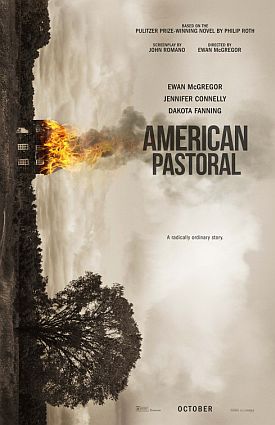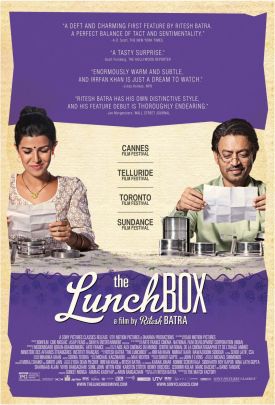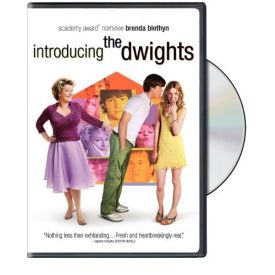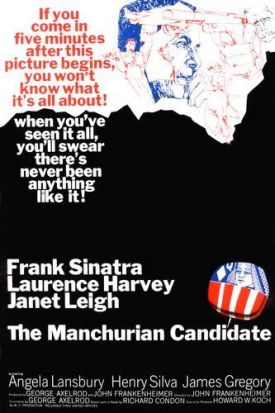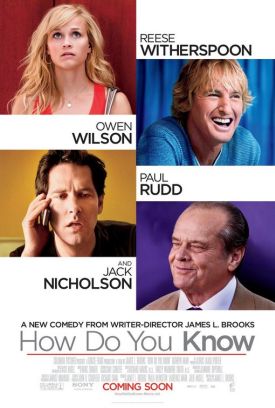American Pastoral
One of the running gags in “The Simpsons” has to do with Homer’s mother, who left Abe Simpson when Homer was a child to become a Weatherman-type terrorist. She has been on the run from the police ever since blowing up the Montgomery Burns institute for research into biological warfare back in the 1960s and is only able to pay short visits at long intervals to Homer and Marge and her grandchildren, Bart, Lisa and little Maggie. To them she is a romantic heroine. The contrast between the gentle and sympathetic mockery with which she and her counter-cultural connections are portrayed and the ridicule routinely heaped on the head of poor old Abe, a World War II veteran, is instructive, but the past out of which each parent has sprung is seen as more or less equally a joke, or at least nothing to be taken seriously by a culture presumptively inclined to look forward, not back.
As the show sees the world mostly from Bart’s point of view, you can understand the reason for this attempt at distancing from the mighty deeds of past generations and their tendency to mythologize them, but I think it is also fair to say that there was always a strong element of the absurd in everything associated with the radicalism of the 1960s and 1970s. The radicals themselves cultivated this by making heroes out of such figures as Jerry Rubin and Abby Hoffman. It wasn’t just revolution they promoted but “revolution for the hell of it.” They were not quite ignorant of the fact that revolutions tend to involve killing people, often on a large scale, but why spoil the joke by focusing on that — perhaps with a glance at the contemporaneous “Cultural Revolution” in China — instead of the fun side of busting up the world of one’s parents?
Philip Roth, who made his reputation as an earlier sort of funster, belatedly called time on this sort of anarchic but childish iconoclasm in his novel American Pastoral (1997), but in doing so he made the understandable mistake of taking it too seriously, or at least pretending to do so. That’s why the sense one has at the end both of the novel and, now, of the movie, directed by and starring Ewan MacGregor as the novel’s hero, Seymour “the Swede” Levov, is one of studied incomprehension. The radicalization of the Swede’s daughter Merry (Dakota Fanning), the loving child of loving parents, leads to an act of terror when she is 16 which kills a local doctor (in the novel) or the proprietor of the general store (in the movie) in the Levovs’ bucolic New Jersey community, but it is portrayed in both as being like a childhood cancer: cruel, senseless and deadly — something that strikes at random and without warning and for no reason except, perhaps, the jealousy of the gods against those might otherwise be too happy.
The reiterated lament of the internal narrator, Nathan Zuckerman (David Strathairn), is that it all turned out so differently for the Swede from what was expected when he was the Golden Boy of Weequahic High School athletics back in Newark. “You come at people with an open mind and yet you never fail to get them wrong,” he says in voiceover. “I thought that life had opened its arms to shower [the Swede] with blessings. I never was more wrong about anyone in my life.” Well blow me down! Is this a tragedy about the destruction of a family or a lugubrious exercise in self-pity by this long-ago acquaintance for having guessed wrong about it? Such questions hardly occur to one under the spell of Mr Roth’s hypnotic prose, but the movie is without that protection from banality, and it unerringly reproduces all the novel’s weakest points, all its false notes, which one might well have read it through without noticing.
“He was our Kennedy,” Mr Strathairn intones when speaking of the Swede. Surely, I thought, that must be the contribution of John Romano, Mr Roth’s fellow Newarkian who gets credit for the screenplay. But no, Phil himself wrote it. Or, rather, he wrote: “He is our Kennedy.” It’s right there on page 83. Where had he been for the 30 years before penning such a dreadful cliché? Had he somehow managed to miss the news that Kennedy himself wasn’t really anyone’s Kennedy? People only wanted to believe he was after he was so brutally and senselessly killed. The Swede was meant to be a good and decent man. Would he, had he existed, have been flattered by the comparison?
The point, I suppose, is to compare, on their very different levels, the public image of the two men as vaguely god-like in the eyes of their respective publics, the Newark Jewish community, ca. 1950, and the bien pensant liberals, ca. 1963, to which that community had by then so largely been assimilated. The Kennedy comparison is beloved of journalists and other writers who see it as an opportunity to show off their own perspicacity in seeing through it. Hence the misdirection in making the Roth alter ego, Nathan Zuckerman — known here to his high-school classmates as “Skip” because he skipped a couple of grades — as much in thrall to the Swede’s Golden Boy image as anyone else. More, indeed. That’s why his guessing wrong — which is also in the novel but predicated of the Swede’s putative absence of an inner life rather than his fate — is meant to seem important.
Closely related to the Kennedy trope in this respect (and the irony of Merry’s deadly protest against Kennedy’s war is mentioned in the novel but not, that I remember, in the movie) is that of America’s post-war innocence, the extravagant hopefulness (as it seems in retrospect) of a time “when the Swede, his neighborhood, his city, and his country were in their exuberant heyday, at the peak of confidence, inflated with every illusion born of hope.” This is another liberal favorite and accordingly leads off the movie as Mr Strathairn’s voiceover informs us that “It was 1945. America had won the war. . .” etc. while we watch an equally clichéd montage of newsreel footage of the celebrations of V-E or V-J day. But I wonder. The people of 1945 didn’t know at the time that everything was great and hopeful. They were glad to have come through, of course, but they knew that many did not.
“Dream and it may come true,” the Johnny Mercer song that serves as an epigraph to the novel, was not so much an expression of hope as what people had instead of hope, which was more like a wish born of desperation. They weren’t really expecting utopia, or even engaging in what the novel refers to as “utopian thinking” but just doing the best they could with what they had. No one knew that, the war over, we wouldn’t revert to the Depression which had ended with it. History in his fictional Old Rimrock, New Jersey, wrote Mr Roth “had not put in an appearance that was notable since Washington’s army twice wintered in the highlands adjacent to Morristown.” It “had made no drastic impingement on the daily life of the local populace since the Revolutionary War.” But weren’t the many families that lost loved ones in World War II touched by history? It certainly wasn’t any stranger to that generation. One may begin to think that it is Mr Roth, not the pop culture of the period, to which he is typically condescending, who is the sentimentalist.
But maybe this falsification of the past is related to the film’s stress, also with warrant from the novel, on the senselessness of the Swede’s tragedy, on the fact that such a good and decent man didn’t deserve such a ghastly fate. At one point, when the Swede keeps a rendezvous with a woman (Valorie Curry) whom he takes to be an emissary from his fugitive daughter without telling the police, the FBI agent on the case (Mark Hildreth) says to him: “You’ve done everything wrong you possibly could.”
“Since when?” asks Swede.
“That’s a question you will have to answer for yourself, Mr. Levov.”
It’s another case of misdirection. In the novel, all kinds of questions are raised as to what Merry’s parents might have done to turn her into a moral monster, only for them to be dismissed in the end. The movie cuts to the chase and, by overstressing the Swede’s moral and paternal perfection, flags in advance that it is going to let him off the hook. There is no meaning in Merry’s crime, and no accounting for it apart from the action of malign fate. But meaninglessness is like the vacuum that nature is said to abhor, and when you try to create it you can’t turn around before you find all kinds of subsidiary and trivial meanings rushing in to fill the empty aesthetic space — like that of “Skip” Zuckerman’s having been blind-sided or the loss of America’s putative innocence.
We may also realize that the meaningful attempt to convey meaninglessness in both the novel and the film must owe something to the authors’ unwillingness to see any connection between their own and the Swede’s enlightened progressivism and the act of terrorism by the radical daughter of such perfectly liberal parents. Of course one daren’t even hint at such a connection for fear of incurring a fatal nemesis of the gods oneself. In real life, the senselessly horrible must be supposed to be routine. As entertainment, however, it only really works as a joke, and that is what Mr Roth and, now, his adaptors are at pains to avoid.
Discover more from James Bowman
Subscribe to get the latest posts to your email.

